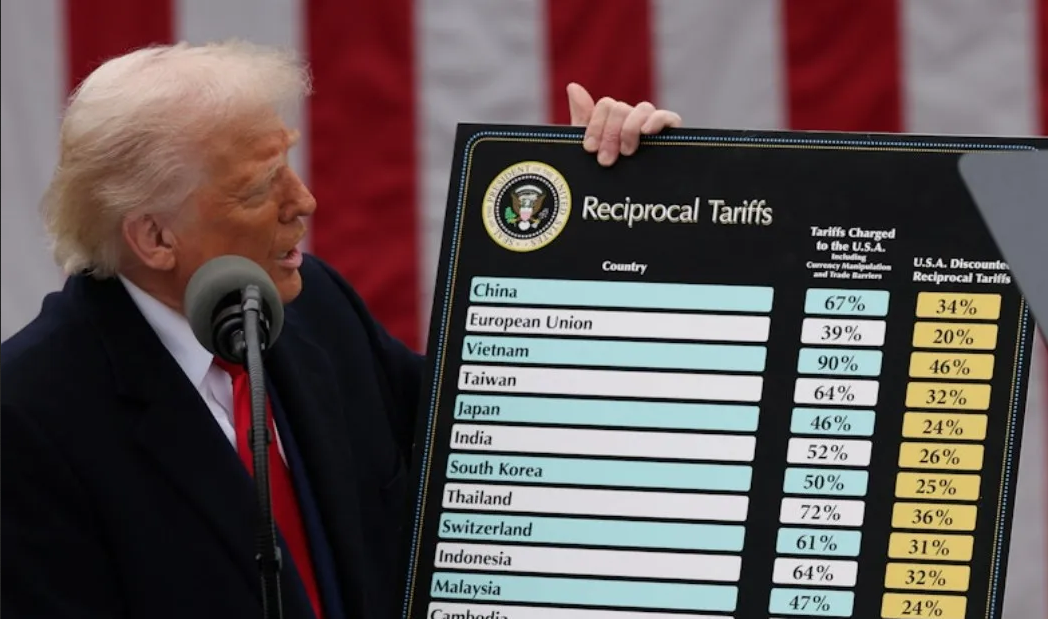Faced with high border taxes and strict regulations, struggling vendors along the Namibia-Zambia border resort to smuggling essential goods to sustain their businesses.
A single mother of four says when she became a street vendor in 2020, she quickly learned that smuggling tomatoes and onions at ungazetted points of entry is the only way to make a profit.
The 36-year-old street vendor, who spoke to The Namibian on condition of anonymity, says smuggling is how she sustains her business and provides for her family.
She has tried the legal way of doing business, but after paying a high rate of value-added tax at the border, she would be left with nothing, she says.
“As a street vendor who sells a pack of tomatoes and onions for N$10, I’m unable to pay the high border charges. Paying for transportation to smuggle products is way cheaper.
“Furthermore, it takes very long to declare these items, and while you wait there, the goods spoil, and you are left with a loss. At times they will confiscate your goods if you didn’t provide the proper papers from suppliers,” she says.
Other food items mostly smuggled from Zambia include sweet potatoes, peanuts, beans, maize, eggs, and other traditional foods.
Law-enforcement agencies say they are also hard at work confiscating many other smuggled goods, apart from food items.
The borderline between Namibia and Zambia stretches about 247km from west to east.
The Katima Mulilo border post is just 4km outside of town, creating convenient cross-border trade for citizens of both countries.
NO STOPPING IT
This post is regarded as one of the busiest, having operated on a 24-hour basis since 2023.
However, the two countries’ governments’ efforts to promote trade have not put a dent in cross-border smuggling.
Regional police commissioner Andreas Shilelo says the culprits often involve well-known local business people.
He says one would think well-off business people would know better than to smuggle.
“Despite our best efforts to curb illegal smuggling activities along this border, it continues unabated. Recently, while patrolling, officers intercepted a vehicle of a local businessman carrying heaps of goods coming from Zambia using an illegal route through Katima Farm.
“They had no documentation for these goods. Two suspects were arrested, goods were confiscated, and the vehicle was impounded. This car has been on our radar as it has been used to smuggle illegal goods previously,” he says.
Shilelo says fining the culprits is not sufficient, as they pay their fines and continue with their smuggling activities.
Additionally, smugglers make use of illegal routes at all hours, he says.
They’ve also created communication channels to alert each other to police presence.
“However, we also tighten our intelligence channels through working with our Zambian counterparts, other local agencies, and the community to intensify our efforts to curb these activities along the border.
“As a result we have had numerous successes, which have resulted in arrests and the confiscation of goods and impounding of vehicles,” he says.
But despite their best efforts, the police cannot be present all along the border, he says.
MILLIONS LOST
The cross-border smuggling of goods along the Namibia-Zambia border last year resulted in a loss of almost N$2 million, the Namibia Revenue Agency (Namra) has reported.
This is almost twice as much as in 2023, when the loss stood at about N$800 000.
Namra spokesperson Steven Ndorokaze recently told The Namibian the agency has issued 134 fines amounting to about N$800 000 to individuals for smuggling goods.
He said a lot of smuggling goes undetected though.
“The smuggling of goods through gazetted points of entry is a significant challenge along the Namibia-Zambia border. This not only results in revenue losses, but also undermines our efforts to protect society, as some of these goods pose serious health and safety risks to the communities,” he said.
Ndorokaze said the agency is trying to combat the issue in collaboration with law-enforcement and border agencies.
“Collaboration between Namibian and Zambian border agencies has improved significantly, and community reports of smuggling activities indicate that outreach programmes are fostering vigilance and compliance.
“We also have an anti-smuggling mobile team that has resulted in the successful interception, detention, and seizure of various goods along the border and inland,” he said.
LOCAL PRODUCERS SUFFER
Zambezi Horticulture Producers Association executive chairman Castrow Muunda says the illegal smuggling of goods along the border not only damages the country’s economy, but also puts local food producers at a disadvantage.
He says the informal fresh produce market in the region is the largest for smugglers from Zambia.
“About 70% of what local farmers produce ends up in the informal market, but for Zambezi, this market is flooded by smuggled fresh produce.
“The quality and quantities produced at home are below that produced by farmers in Zambia,” he says.
Muunda says as long as there’s a market for smuggled products, Zambian farmers will continue producing for this market, and local farmers will suffer.
HEALTH RISK
Additionally, there is a serious health risk in consuming smuggled produce from Zambia.
“Some of the fresh produce we’ve been consuming has been stolen from farms by people who do not understand why a red flag is hoisted in a block of tomatoes ready for the market. We end up with tomatoes that still have chemicals as they’re still within the withdrawal period,” Muunda says.
Illicit goods smuggled include prohibited alcohol beverages, pesticides, cigarettes lacking the necessary warnings, skin-lightening creams and pharmaceutical products.
Stolen household goods and livestock are also smuggled into Zambia and sold.
The illegal crossing of people into Namibia remains another challenge along the border.
Zambians mostly cross into Namibia in search of jobs like cattle herding, housekeeping, or piece jobs.
They also engage in criminal activities, the police say.
And locals depending on cheap labour and products fuel this trend.
‘NOT BOTHERED’
At Stone City, a recreational centre near the Katima Mulilo border on the banks of the Zambezi River, a group of young Zambians are running their own car wash services.
Locals are charged between N$10 and N$20 to have their cars washed.
Joel Mbala says the young men crossing the border illegally do not bother him.
He is more interested in the service they provide, he says.
“They are providing a service that’s otherwise not available at Stone City, and it’s way cheaper. Therefore, I see no problem with them as long as they do not commit crimes while here.”
Stay informed with The Namibian – your source for credible journalism. Get in-depth reporting and opinions for
only N$85 a month. Invest in journalism, invest in democracy –
Subscribe Now!










